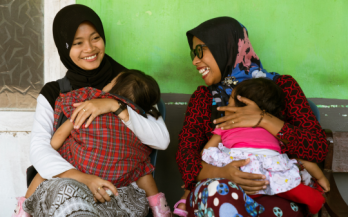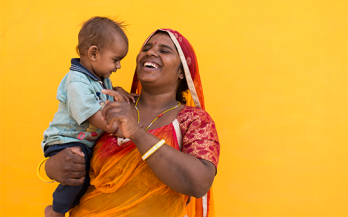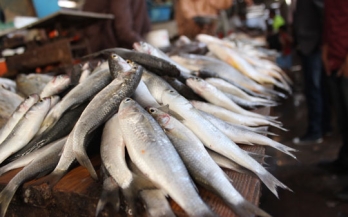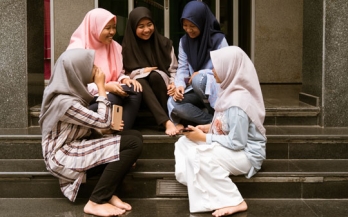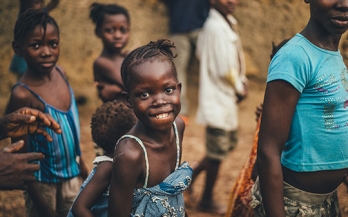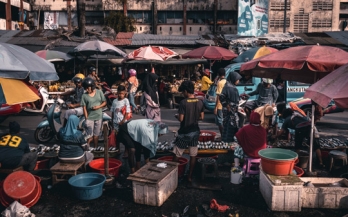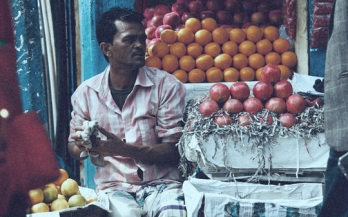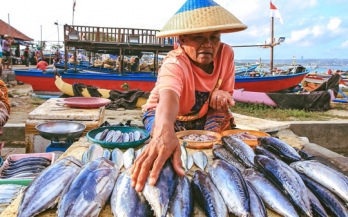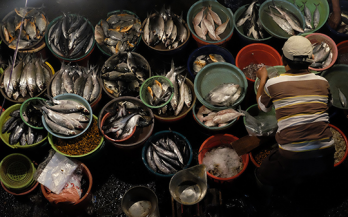Aang Sutrisna, Anthony Wenndt, Drajat Martianto, Hera Nurlita, Yusra Egayanti - 31/05/2024
Micronutrient malnutrition remains a significant challenge in Indonesia, particularly among impoverished populations who struggle to afford and access nutrient-rich foods. Iron deficiency anemia is especially concerning, affecting 48.9% of pregnant women and 38.5% of children across the country. To address these gaps, the Ministry of Health, in collaboration with the Global Alliance for Improved Nutrition (GAIN), conducted a comprehensive Micronutrient Gap Assessment (MGA). This assessment aimed to evaluate micronutrient intake levels among Indonesians and identify the potential benefits of rice fortification in meeting recommended dietary requirements.
Aang Sutrisna, Charles Opiyo, Maureen Muketha, Sharada Keats, Kathrin Demmler, Anouk de Vries, Ann Trevenen Jones, Mark Gachagua - 22/04/2024
As countries develop their National Pathways for food systems transformation, one emerging need is to
ensure policies land at different levels. A truly effective ‘national’ policy must span all sub-national areas.
Global Alliance for Improved Nutrition (GAIN) - 16/09/2022
In 2013 Indonesia’s Ministry of Health requested that GAIN support the district governments of Malang and Sidoarjo in East Java Province to reduce stunting by improving maternal and infant nutrition.
Global Alliance for Improved Nutrition (GAIN) - 12/09/2022
In 2018 GAIN began work in collaboration with the District Fisheries Offices of Indonesia’s Ministry of Maritime Affairs (MMAF) to develop the Indonesia Postharvest Loss Alliance for Nutrition (I-PLAN). I-PLAN aimed to improve the domestic supply of fish by reducing post-harvest losses.
Rimbawan, Eny Kurnia Sari, Aang Sutrisna - 08/06/2022
Adolescents in Indonesia face multiple nutritional challenges, including undernutrition and anaemia, as well as a growing prevalence of overweight and obesity. To promote understanding of the Healthier Choice Logo among adolescents as well as to learn more about adolescent food choices, GAIN supported a programme called Pelajar Peduli Gizi (Students for Nutrition).
Global Alliance for Improved Nutrition (GAIN) - 06/06/2021
The COVID-19 pandemic is a multiplier of vulnerability, compounding threats to food security and nutrition (FSN) while exposing weaknesses in food systems. In response, the Global Alliance for Improved Nutrition (GAIN) developed the Keeping Food Markets Working (KFMW) programme to provide targeted support to help sustain core food systems.
Global Alliance for Improved Nutrition (GAIN) - 18/03/2021
This Situation Report—the fifth in a series—finds that COVID-19-related control measures continue to have an impact on food systems in 10 countries where GAIN works: Bangladesh, Ethiopia, India, Indonesia, Kenya, Mozambique, Nigeria, Pakistan, Rwanda and Tanzania.
Global Alliance for Improved Nutrition (GAIN) - 02/12/2020
The COVID-19 pandemic is a multiplier of vulnerability, compounding threats to food security and nutrition (FSN), while exposing weaknesses in food systems. In response, the Global Alliance for Improved Nutrition (GAIN) developed the Keeping Food Markets Working (KFMW) programme to provide targeted support to help sustain core food systems, workers, and markets during the COVID-19 emergency.
Global Alliance for Improved Nutrition (GAIN) - 24/11/2020
Recognising that the problem of food loss in the fish value chain cannot be tackled in siloes and requires coordinated action, the Indonesia Postharvest Loss Alliance for Nutrition (I-PLAN) was created in 2018 to bring together the expertise and resources of the Global Alliance for Improved Nutrition (GAIN), the Ministry of Health, Ministry of Marine Affairs and Fisheries and a diverse range of business, academic and civil society organisations.
Global Alliance for Improved Nutrition (GAIN) - 12/11/2020
Food loss is a big challenge in Indonesia, with loss of nutritious fresh fish particularly significant. Indonesia is ranked second in the world for food loss1, suffering a yearly loss of approximately 13 million tons2, equating to 300 kg per person per year and comprising about 20% of agricultural crops and 30%3 of fisheries products.
